So I'm using this C library in my C++ app, and one of the functions returns a void*. Now I'm not the sharpest with pure C, but have heard that a void* can be cast to pretty much any other *-type. I also know that I expect a float at the end somewhere from this function.
So I cast the void* to a float* and dereference the float*, crash. darn!.
I debug the code and in gdb let it evaluate (float)voidPtr and low and behold the value is what I expect and need!
But wait, it's impossible to the same during compile time. If I write float number = (float)voidPtr; it doesn't compile, which is understandable.
So now the question, how do I get my float out of this fricking void*?
EDIT: Thanks to H2CO3 this was solved, but I see lots of answers and comments appearing and dissappering not believing that I could do (float)voidPtr in gdb. here is the screenshot.
